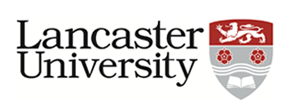对比下港中文的金科和BA
FINA6122 FINANCIAL MARKETS AND INSTRUMENTS
Financial markets play a pivotal and central role in the formation of investment capital and, therefore, societal wealth. This function, in addition to many others, is explored in this course. Attention will also focus on the forms and structures of financial markets (i.e., stock, futures, gold and foreign exchange markets) both locally and internationally. Within this brief, detailed consideration is also given to the various institutions participating in the markets and to the form and functions of instruments quoted.
FTEC5510 ADVANCED FINANCIAL INFRASTRUCTURE
This course provides an advanced examination of financial infrastructures, which include trading venues and platforms, securities settlement systems, payment systems, cross-border transactions interlinks, central counterparties and clearance, cybersecurity, and systemic risks. It requires students to undertake project work with a view to make concrete their understanding of the underlying technologies enabling Hong Kong’s financial infrastructure. The student projects will be required to explore the implications of new financial services technology, in particular, the licensing prerequisites, regulatory controls and supervision such new services necessitate. Students will have to form groups and select a particular infrastructure area, e.g. electronic payments or lending, and conduct a deep analysis of its operations, and thereby creating new/enhanced service propositions. It is intended that project teams will be able to create prototype solutions through collaborating with, for example, the Hong Kong and Science Technology Park (HKSTP), Cyberport, ASTRI, or other CUHK labs. Upon completing this course, students should have acquired advanced understanding of components of financial infrastructure, and its significance in the financial services sector.
FTEC5520 APPLIED BLOCKCHAIN AND CRYPTOCURRENCIES
The course introduces the basic underlying cryptographic concepts and technologies of blockchain as a method of securing distributed ledgers in all digital transactions. The significances of trust, anonymity and consensus mechanisms are discussed. The course also further explains the application of blockchain to cryptocurrencies and smart contracts. Examples of public and private blockchains are discussed with emphasis on the applications of blockchain in Finance.
ELECTIVE COURSES
CMSC5705 ADVANCED TOPICS IN DATABASE SYSTEMS
This course will introduce query processing methods that are designed to solve important data management problems in various domains, including spatial databases, uncertain databases, stream databases, and so on. All the techniques discussed have the common features that they (i) have been proven to be highly effective in practice, and (ii) can be easily implemented in real world applications.
CMSC5712 COMPUTER MODELS FOR E-BUSINESS
This course studies the modelling for E-Business, in particular the functional models, customer behaviour models, and resource models. These models will be used in E-Business capacity planning and system performance evaluations. In particular, modelling of contention for software servers and characterizing of E-Business workloads will be included. Other topics cover quantitative analysis of authentication services and payment services.
CMSC5718 INTRODUCTION TO COMPUTATIONAL FINANCE
This course introduces some basic concepts in computational finance. Topics include risk and return, modern portfolio theory, calculating the efficient frontier, multiple factor models, various models for portfolio optimization, utility functions and evaluation of portfolio performance.
CMSC5741 BIG DATA TECHNOLOGY AND APPLICATIONS
This course aims at teaching students the state-of-the-art big data technology, including techniques, software, applications, and perspectives with massive data. The class will cover, but not be limited to, the following topics: advanced techniques in distributed file systems such as Google File System, Hadoop Distributed File System, and map-reduce technology; similarity search techniques for big data such as minhash, locality-sensitive hashing; specialized processing and algorithms for data streams; big data search and query technology; recommendation systems for Web applications. The applications may involve business applications such as online marketing, computational advertising, location-based services, social networks, recommender systems, healthcare services.
CSCI5580 ONLINE ALGORITHMS FOR MACHINE LEARNING AND OPTIMIZATIONS
This course aims to cover topics in online learning and online optimization. Typical topics include multi-armed bandit (MAB) problems in various settings, online convex optimization (OCO) problems such as online linear regression, online classification, and certain general reinforcement learning problems. Different algorithms will be introduced to solve these problems and analysis of the performance and efficiency will be provided.
Advisory: Students are expected to have taken a course on "Design and Analysis of Algorithms" or its equivalent.
ECLT5720 ELECTRONIC PAYMENTS SYSTEMS
This course covers various methods of transferring payments over the Internet and compares their functionality. Topics include electronic money, electronic contracts, micro-payments, authenticity, integrity and reliability of transactions, encryption and digital signature techniques needed to support electronic cash, and technologies available to support secure transactions on the Internet.
ENGG5108 BIG DATA ANALYTICS
This course aims at teaching students the state-of-the-art big data analytics, including techniques, software, applications, and perspectives with massive data. The class will cover, but not limited to, the following topics: advanced techniques in distributed file systems such as Google File System, Hadoop Distributed File System, CloudStore, and map-reduce technology; similarity research technique for big data such as minhash, locality-sensitive hashing; specialized processing and algorithms for data streams; big data search and query technologies; managing advertising and recommendation systems for Web applications. The applications may involve business applications such as online marketing, computational advertising, location-based services, social networks, recommender systems, healthcare services, or other scientific applications.
FINA6250 FUNDAMENTALS OF DERIVATIVES TRADING STRATEGIES
This course intends to offer students insight into the implementation of options theory in the practical trading environment. The main strategies for trading derivatives will be discussed and the students are to apply their knowledge in practical trading sessions.
FTEC4006 INTERNET FINANCE
This course provides students with the fundamentals in the operations and management of Internet finance. It will cover overall applications of Internet-based technologies such as mobile payments, social network, search engines, cloud computing, and big data on the financial sector. Specific topics include third-party payments, Internet currency, P2P lending, crowdfunding, and the use of big data in financial services. The course adopts case studies as the major means of teaching and learning.
FTEC5530 QUANTITATIVE AND ALGORITHMIC TRADING
The industry landscape of investment, trading, and risk management has been revolutionized by computing technologies, data science, and financial engineering. To progress in tandem with the changes in the industry, the topics covered in this course leverage on the recent developments in portfolio theory, empirical finance, and quantitative and algorithmic trading. In addition to mathematical modeling, an important part of this course is the practical aspect: computational implementations with statistical tests. Given that implementation and test procedures are involved, this quantitative finance course is algorithmic and hands-on in nature.
FTEC5540 FINANCIAL TECHNOLOGY INTERNSHIP
The objective of the course is to allow students to acquire a basic understanding and the skills of the practical aspects of the financial technology profession. To qualify for the award of the subject credits, the student must (a) attend regulatory workshop provided by such regulatory authorities as the Hong Kong Monetary Authority, Securities & Futures Commission, and Insurance Authority, and (b) attach to a company in a financial technology related post as approved by the Professor-in-Charge for no less than 12 weeks. The student will have an academic supervisor as assigned by the Professor-in-Charge and an industry supervisor from the company. There will be a mid-term company visit by the academic supervisor. At the end of the internship, the student must give a presentation to the academic and industry supervisors, and submit a report summarizing what the student has done and learnt from the internship. The student’s grade will be determined by (1) the presentation, (2) the student report and (3) a testimonial from the industry supervisor.
The internship should normally take place in the summer term after a student has finished the first two semesters of studies. Part-time students can decide to undertake the internship in the summer term of either the first or second year of studies.
Students are recommended to seek the Professor-in-Charge's comment on potential internship opportunities before enrolling in the course.
FTEC5550 ELEMENTS OF REGTECH FOR THE FINANCIAL MARKET
Financial markets must be safe, efficient and fair. It is a primary goal of market regulation to achieve this. Financial regulations touch the market at a number of key points of inflection in order to maintain market quality. These points include the qualifications of market participants, their ongoing compliance with law, and the manner in which they trade and transact, as well as the information (public or private) they use for trading and the way they deal with clients. Information Technology, data analytics and machine learning are allowing market regulation to advance in ways previously not possible, such as through monitoring of trading and transactions, detection of abusive activities and focused enforcement, among others. This course will bring experts from information technology, finance and law together in order to give students the fundamental elements of both financial regulation and information technology as they meet in the important new discipline of RegTech.
FTEC5560 FINANCIAL TECHNOLOGY INNOVATIONS
This course aims to provide students with the views of global, and in particular China and HK FinTech innovation landscape, including virtual banking and other business model innovation, associated opportunities and challenges. It covers topics including digital lending, digital payment, big data analysis application, FinTech partnership & incubation, Open API, digital product propositions, organizational design to support innovation. This is relevant for students who are interested to work in innovation-related departments in traditional institutions, FinTechs or intend to initiate a start-up. The course also covers the latest development in financial technology innovations and offers case studies.
FTEC5570 FINANCIAL TECHNOLOGY ENTREPRENEURSHIP*
The aim of this course is to turn innovative, creative, and inquisitive FinTech students into entrepreneurs through multi-disciplinary, fully-immersive, hands-on, and project-based learning. The course covers topics in disruptive innovation and business models, human centered and design-driven innovation, business plan formulation, start-up pitch, how technology spur entrepreneurship, fundraising, growth, acquisition and IPO, making critical decisions during the journey, in order to equip participants to become entrepreneurs in the FinTech world. Course participants are expected to:
1. Learn the basic knowledge on patents, intellectual property, contracts, copyright, and trademarks
2. Acquire refined communication, organizational, and leadership skills for entrepreneurs
3. Conduct case-study research on how FinTech entrepreneurship plays an important role in the development of the high-tech industry
4. Participate in a field-trip to visit organizations (e.g. in Silicon Valley or Bay Area) on various FinTech domains for a close-up on the operation of these organizations
5. Take part in a class group project and present the research finding on FinTech entrepreneurship and the learning outcome from the field trip
* The arrangement of field-trip to visit overseas organizations will be subject to the situation of COVID-19 pandemic and may be substituted by other learning activities.
FTEC5580 DATA ANALYTICS FOR FINANCIAL TECHNOLOGY
The aim of this course is to equip students with essential data analytics techniques for problems in financial technology. Topics covered by this course include linear and general regression, classification techniques such as logistic regression and discriminant analysis, decision trees, support vector machines, principal component analysis, clustering methods, time series models, resampling methods and deep learning models. Various applications in asset management, risk management, asset pricing and financial prediction will be used to illustrate the methods throughout this course. Students also learn how to implement these methods in the popular data analytics software R to analyze financial data.
FTEC5590 ROBOTIC PROCESS AUTOMATION (RPA)
Robotic Process Automation (RPA) has been described as a first step on the digital stairway of intelligent automation towards artificial intelligence. The aim of this course is to provide learners comprehensive coverage of RPA in the context of financial services. This course will build the capabilities of student skills to an advanced level and will enable participants to actively engage in the full lifecycle of RPA development from assessment of RPA opportunities through the building/deployment of bots.
FTEC5910/5920 FINANCIAL TECHNOLOGY PROJECT I / II
The two courses, Financial Technology Project I & II, involve a significant research and/or development project under the supervision of an academic staff in any area of financial technology. Unless otherwise approved by the Professor-in-Charge, the project should involve an industrial partner with a co-supervisor from the industry.
At the end of the course, the student must give a presentation to the academic and industry supervisors, and submit a report detailing the findings and deliverables. The student’s grade will be determined by the presentation and the report.
Unless otherwise approved by the Programme Director, the credits for Financial Technology Project I are recognized if and only if the student takes also Financial Technology Project II in a subsequent semester.
If a student has prior industrial background and has already secured a project topic with an industrial practitioner and the agreement of an academic staff, Financial Technology Project I can be taken in the first semester of studies. Otherwise, the two project courses can be taken in any consecutive semesters, including the summer term.
Students are encouraged to find industrial projects by themselves and talk to various academic staffs for project ideas before enrolling in the courses.
IEMS5710 CRYPTOGRAPHY, INFORMATION SECURITY AND PRIVACY
This course aims to enhance students' knowledge in cryptography as well as information security and privacy, in both theoretical and practical ways. The course introduces cryptography at an elementary level, enabling students to appreciate on its application to information security and privacy. Daily applications of cryptography will be discussed, including digital certificate and Public Key
Infrastructure (PKI), Virtual Private Network (VPN), wireless communication security, as well as security and privacy issues in online social networks.
IEMS5730 BIG DATA SYSTEMS AND INFORMATION PROCESSING
This course aims to provide students an understanding in the operating principles and hands-on experience with mainstream Big Data Computing systems. Open-source platforms for Big Data processing and analytics would be discussed. Topics to be covered include:
• Programming models and design patterns for mainstream Big Data computational frameworks ;
• System Architecture and Resource Management for Data-center-scale Computing ;
• System Architecture and Programming Interface of Distributed Big Data stores ;
• High-level Big Data Query languages and their processing systems ;
Advisory: This course contains substantial hands-on components which require solid background in programming and hands-on operating systems experience.
IERG5310 SECURITY & PRIVACY IN CYBER SYSTEMS
This course discusses the design and realization of security and privacy services in practical large-scale systems. Topics include: Online Identity and Authentication Management ; Safe Browsing ; Geolocation privacy ; Mobile payment systems with Smartcard/ Near Field Communications (NFC) ; e-cash ; Best privacy practices for Online Social Networks and Mobile applications ; Cloud Computing security and privacy: Trustworthy Cloud Infrastructure; Secure Outsourcing of Data and Computation ; Data Provenance; Virtual Machine security. Additional cyber security services/applications such as e-voting systems, secure and anonymous routing systems, digital rights management will also be covered.
Advisory: Students are expected to have basic background in Cyber Security.
IERG5320 DIGITAL FORENSICS
This course is an introduction to digital forensics and cyber crime investigation. It will discuss techniques, methods, procedures and tools for applying forensic science and practice to the acquisition and analysis of evidence existing in digital form for the purposes of cyber crime investigation. Specific topics include computer (hard disk, file-systems) forensics, network/intrusion forensics, mobile device forensics, and a brief introduction to multimedia forensics. Techniques for detecting, tracking, dissecting and analyzing malware and other malicious cyberspace activities will also be covered.
Advisory: Students are expected to have basic background in C/C++ programming skills.
SEEM5820 INTRODUCTION TO FINANCIAL ENGINEERING*
Models of risks. Utility functions, and mean-variance theory. Probability models and price dynamics of securities. Geometric Brownian motion, Ito’s lemma, Black-Scholes model. Capital asset pricing. Risk hedging. Optimization techniques. Applications to investment and portfolio management. The emphasis is on mathematical modelling, analysis and computation.
*This course is previously known as "Models and Decisions with Financial Applications".
Note: Curriculum is subject to revision.
商业分析课程
Course list
Core courses
-
Statistical Analysis
-
Decision Models and Applications
-
Data Mining for Managers
-
Risk and Operations Analytics
-
Business Intelligence Techniques and Applications
Elective courses
-
Managing Service Operations
-
Economic Analytics
-
Web Analytics and Intelligence
-
Business Process Analysis and Simulation
-
Selected Topics of Business Analytics
-
Database and Big Data Management
-
Supply Chain and Logistics Management
-
Marketing Engineering
-
Technology Field Study
-
Artificial Intelligence for Business
-
Selected Topics of Information and Technology Management
Other elective courses
You may take up to 6-credits-worth of courses from other programmes within CUHK Business School or from the Faculty of Engineering, subject to approval by Programme Directors. Courses may include Customer Relationship Management, Mergers and Acquisitions, Financial Analysis and Security Trading, and Organisational Marketing.













